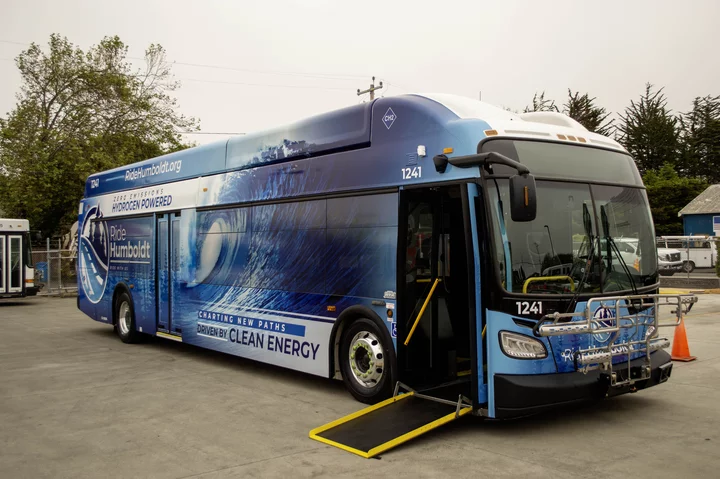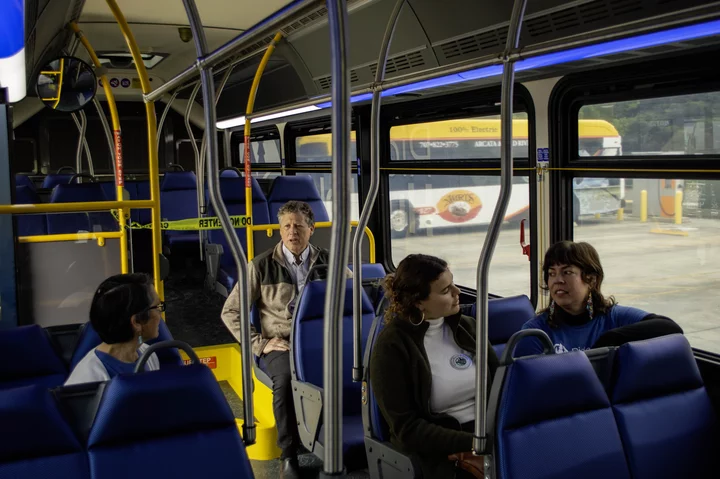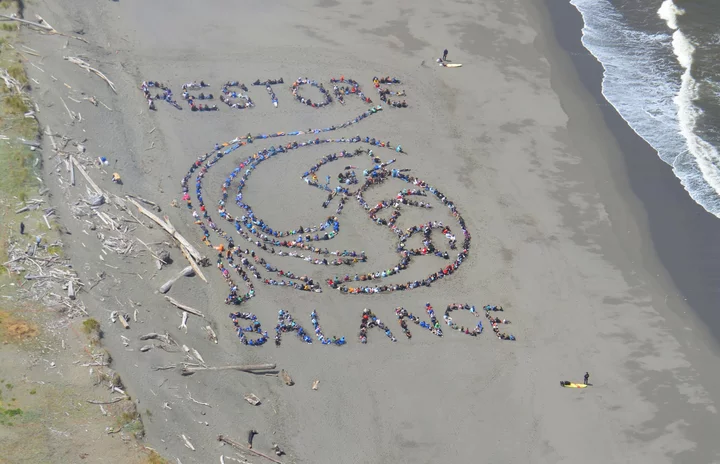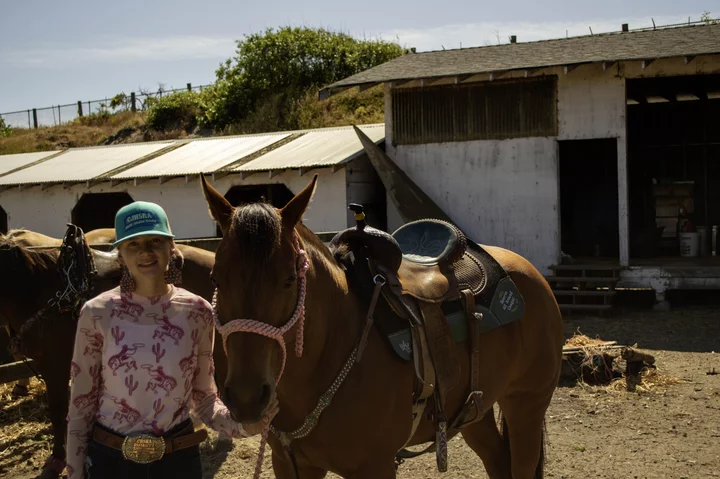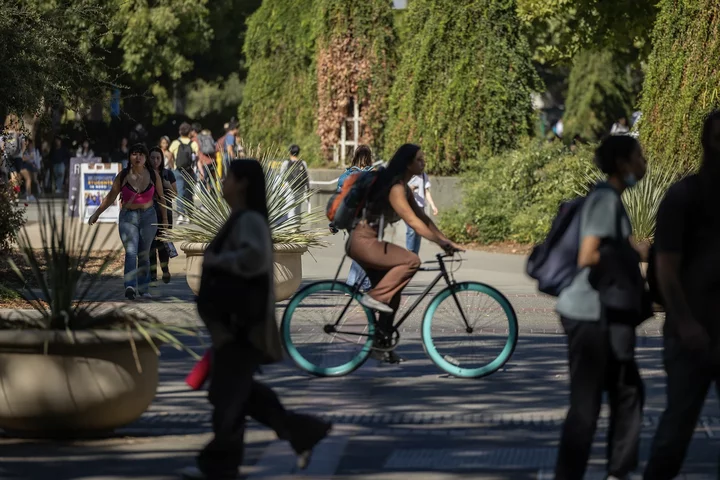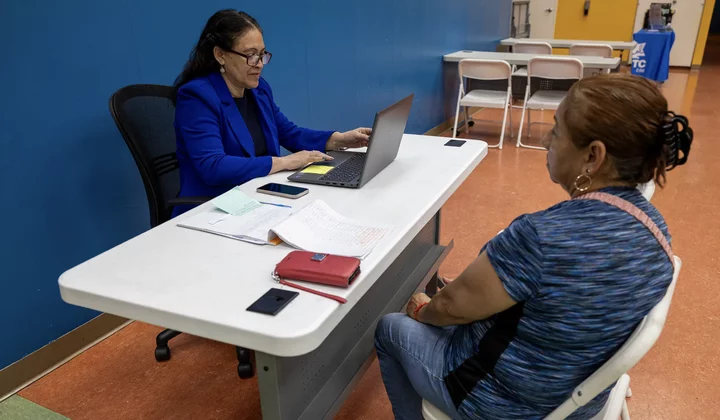OBITUARY: Lee Earl Mason, 1946-2025
LoCO Staff / Saturday, May 31, 2025 @ 6:55 a.m. / Obits
Lee Earl Mason passed away peacefully at home with his wife at his side in the early morning of May 28th 2025 after a long battle with cancer.
Lee was born October 29th 1946 to Phylliss Hubbard and Ernest Mason. He grew up in Eureka California and graduated from Eureka Senior High School in 1965. Shortly after graduating he enlisted in the United States Army. He served two years fighting in the Vietnam war earning a purple heart.
After being honorably discharged he came home and married his first wife Kathleen Forman. Together they had their two beloved daughters, Angela and Dana Mason. And Lee started his career at the pulp mill in Samoa where he went on to work for over thirty years.
After divorcing his first wife he went on to meet the love of his life, Christine Mason in 1992. They married in 1993 and with her came his step daughter Jennifer Woody.
Lee spent as much time as possible outdoors: traveling, camping, hunting, fishing, rock hunting, metal detecting, and gold panning were some of his favorite hobbies. He loved his “Titanic”, an old RV he spent many summers traveling and exploring in. In his final years Lee enjoyed playing computer games, gambling, cuddling his cats, and watching old war movies.
Lee is preceded in death by his mother Phylliss Hubbard, father Ernest Mason, step father Clarence Churchwell, sisters Corinne and Borgie Churchwell and his brother Karl Churchwell.
He is survived by his wife of 32 years Christine Mason. His daughters Angela Taylor (David), Dana Mason, and step daughter Jennifer Woody. Along with his five grandchildren: Brandon Harris, Shawn Mason, Mordina Taylor, Brianna Stiles, and Nathaniel Stiles.
Lee’s family is forever grateful for all of the VA’s staff that assisted in his case,especially Vicky and Renee. Hospice also assisted in his final weeks of life and the family is thankful for all of them as well.
At Lee’s request no funeral or memorial will be held. He just requested that people remember the good times, so the next time you raise a glass please think of him.
###
The obituary above was submitted on behalf of Lee Earl Mason’s loved ones. The Lost Coast Outpost runs obituaries of Humboldt County residents at no charge. See guidelines here. Email news@lostcoastoutpost.com.
BOOKED
Yesterday: 4 felonies, 7 misdemeanors, 0 infractions
JUDGED
Humboldt County Superior Court Calendar: Today
CHP REPORTS
1400 Mm299 E Hum R14.00 (HM office): Road/Weather Conditions
Redwood Hwy (HM office): Road/Weather Conditions
0 Us101 S (HM office): Trfc Collision-Minor Inj
Mm199 N Dn 33.40 (HM office): Road/Weather Conditions
ELSEWHERE
RHBB: New Cal Poly Humboldt Study Looks at Trees, Powerlines, and Wildfire Risk
RHBB: Six Rivers National Forest Unveils Plans to Hire Summer Seasonal Employees for 2026
RHBB: Lightning Storm Happening Over Humboldt County Tonight
(AUDIO) Fieldbrook Elementary Leadership Team Spreads Warm, Fuzzy Joy at KHUM Studios
Isabella Vanderheiden / Friday, May 30, 2025 @ 3:20 p.m. / On the Air
###
A few students from the leadership team at Fieldbrook Elementary School stopped by the KHUM studios today to chat with DJ Toby Tullis about some of the exciting projects they’ve worked on this semester. The leadership team, led by seventh and eighth graders, provides a platform for students to share ideas and collaborate on initiatives that “improve attendance, promote joy, and build community” within the school district.
“I think this is a great way for students to be a part of changing the school and having an opinion for the school, because without this, it would just be adults,” said Maya, one of the team leaders. “They’re great and they do amazing things, but they also don’t necessarily get into the minds of the students. Having students represent … is a great way to get their opinions out there.”
A few years ago, the leadership team launched a “warm fuzzies” initiative — gifting one another colorful pom-poms with glued-on googly eyes — to spread kindness and strengthen connections among classmates. The team was kind enough to gift fuzzies to the Outpost and our radio colleagues.
Click the link below to listen to the full interview!
###
(AUDIO) Fieldbrook Leadership Team on KHUM
Fuzz!
Humboldt Has a Shiny New Hydrogen Bus Ready to Ride
Dezmond Remington / Friday, May 30, 2025 @ 12:41 p.m. / Transportation
The bus. It’s blue and has a wave on it to emphasize that it only emits water. By Dezmond Remington.
PREVIOUSLY
- Humboldt Transit Authority Awarded $38.7 Million Grant to Buy Fleet of Hydrogen-Powered Buses, Enhance Connectivity Across Northern California
- Huffman Tours the Future Hydrogen Fueling Station, Credits Humboldt Transit Authority for Taking the Lead in Zero-Emission Public Transportation on the North Coast
- Humboldt Transit Authority Awarded $17.5 Million to Beef Up Service, Add More Electric Buses and Build Area’s First Long-Distance Hydrogen-Powered Coach
Years of painstaking effort paid off this morning when the Humboldt Transit Authority (HTA) unveiled their brand-new, revolutionary hydrogen-powered bus.
Funded by a 2022 $38.7 million Caltrans grant, the bus’s design was the result of teamwork between the HTA, the Schatz Energy Research Center, Ride Humboldt and Canadian bus manufacturer New Flyer.
Typical hydrogen fuel cell buses can’t go farther than 300 miles before running out of juice. This one is equipped with nine hydrogen fuel cells on the top and can travel over 400 miles without refueling, a process that takes only 12 minutes. It’s powered by a 100 kilowatt fuel cell.
Peter Lehman, a founder of the Schatz Energy Center, reminisced about testing the bus’s abilities by driving it from Trinidad to Scotia, up Berry Summit, and finally all the way to Ukiah with an extra 5,500 pounds and the heaters blasting the whole ride down. It still made it 435 miles.
“This is the best hydrogen fuel cell bus in America,” Lehman said.
Humboldt County Supervisor Natalie Arroyo cuts the ribbon with HTA director Gregg Pratt (left) and Peter Lehman (right).
The HTA claims no other rural transportation agency in the country has one like it.
Its emissions are nothing but water, and according to HTA General Manager Gregg Pratt, its use will eliminate over 125,000 gallons of diesel over the course of its lifetime.
It’s the first of many. The HTA has the funding to buy more than a dozen more hydrogen buses over the next two and a half years. The temporary fueling station they’re using on this bus will be replaced by a publicly accessible permanent one by the end of 2026.
The bus will service the Trinidad-Scotia and the new North Coast Express (from Eureka to Ukiah) routes when it’s put into service soon.
“Today’s a proud moment of progress,” Pratt said, “Not only for the Humboldt Transit Authority, but for Humboldt … . Embracing new technology hasn’t been easy, but this is a symbol of what’s possible when innovation meets action.”
Arroyo demonstrates the bus’s effective seats.
Humboldt Kids ‘Restore Balance’ to Coastal Dunes
LoCO Staff / Friday, May 30, 2025 @ 12:11 p.m. / Education
Photo: Gabe Adams
From Friends of the Dunes:
On the morning of May 29, 700 local students spent their school day being stewards of the coastal dunes during the 20th Annual Kids Ocean Day event at the Mike Thompson Wildlife Area, South Spit of the Humboldt Bay. After spending the day restoring dune habitat and picking up trash, students, teachers, and volunteers formed an aerial art image of a sea otter and bull kelp with the message “Restore Balance.” The aerial art image was designed by Jess Barger and captured by photographer Gabe Adams with help from pilot Justin Gaffney , as well as by Justin Legge via drone.
Friends of the Dunes, in partnership with the Bureau of Land Management’s Arcata Field Office, organized the Kids Ocean Day event, which took place locally as part of the statewide Adopt-a-Beach program, funded by the California Coastal Commission. Kids Ocean Day is a significant day of action and celebration that aims to empower young individuals to become nature heroes. In late May, Humboldt County joined three other locations along the California coast in hosting student-led beach cleanups and awe-inspiring aerial art displays. These events lead up to the globally recognized World Ocean Day, empowering collective efforts to protect and preserve our precious ocean ecosystems.
Leading up to the event, students participate in educational classroom presentations that explore the causes and impacts of marine debris, as well as identify possible solutions. Through these educational presentations, students gain a deeper understanding of environmental stewardship. They also learn about restoration efforts in our local dune systems, instilling a sense of responsibility and the power to make a positive impact. Kids Ocean Day serves as a platform to emphasize the significance of individual choices to “restore balance” in our communities and for our planet.
“This year’s image is a throwback to our first Ocean Day event in 2005, which was the same message: restore balance, with a yin and yang symbol,” said Suzie Fortner, Executive Director of Friends of the Dunes. “Our collaborative work to conserve the natural diversity of coastal environments is, at its core, about restoring balance. Kids Ocean Day is an opportunity for elementary and middle school students to participate in this collaborative effort. Through both the restoration activities and the aerial art design, students from across the county come together to accomplish a goal that we could not achieve on our own.”
In addition to Humboldt County’s event, Kids Ocean Day events took place in San Diego, Orange County, and San Francisco throughout May. At the four events held along the California coast, over 5,000 students spent a school day caring for their coast by cleaning up litter. In Humboldt County, students clean up trash and focus on removing non-native, invasive plant species to create space for native plants to thrive, increasing biodiversity. A diverse dune is a healthy dune.
This year, a sea otter and bull kelp were chosen to represent the Kids Ocean Day event in Humboldt County. The sea otter is a keystone species of kelp forests, meaning it plays a significant role in maintaining the health of the kelp forest ecosystem. A historic decline in sea otter populations along the California coast has led to an overpopulation of sea urchins, which in turn decimate kelp forests, resulting in an unbalanced system. Sea otter recovery efforts have brought their population back from the brink of extinction, from an estimated 50 individuals in the 1930s to over 3,000 individuals currently. The recovery of this species has helped restore balance in California’s kelp forests. Although we don’t currently have sea otters in Humboldt County, we hope they may be reintroduced in the future.
“The students are sending a powerful message about the need to protect and preserve the California coast,” said Annie Kohut Frankel, Public Education Program Manager for the California Coastal Commission. “Their actions have shown us that we can restore our coast and ensure that it endures for future generations. Thank you to all of these incredible coastal stewards!”
Participating Schools included: Alice Birney Elementary, Blue Lake Elementary, Fieldbrook Elementary School, Garfield School, Jacoby Creek School, McKinleyville Middle School, Northern United Humboldt Charter, Seaforth Montessori, Sunny Brae Middle School, Trinidad Elementary, Union Street Charter School, and Washington Elementary School.
Two Humboldt Junior High Schoolers will be Competing at the National Rodeo Championships
Dezmond Remington / Friday, May 30, 2025 @ 7:29 a.m. / LoCO Sports!
Isabella Brown with her horse Bougie. By Dezmond Remington.
Long ago, some bored farmer decided it would be worth his time to try hopping on the back of every animal in the barnyard to see what happened, and someone else decided that that was worth watching, and thus the sport of rodeo was born.
OK, that’s not really how that happened, but reading through a list of rodeo events can make it seem that way. There’s goat tying and sheep riding and don’t-let-the-bull-send-you-flying, as well as about a dozen or so others that don’t fold into a neat rhyme scheme — and two of Humboldt’s junior high schoolers managed to qualify for this year’s national championships, going down in June in Des Moines, Iowa.
Bull riding is simple: stay on the thrashing 2,000 pound monster trying to get you the hell OFF for eight seconds, and look good while you’re doing it.
“You gotta just keep your feet down,” advised Ferndale’s Layne Avelar, 15, winner of the event at the Junior High State Rodeo in an interview with the Outpost. “Keep them next to your rope. Don’t throw your arms all over the place, or else it’s just gonna throw you off center and stuff. Try to stay square.”
Avelar comes from a rodeo family. His sister competes, and his mom used to as well. His stepdad also used to ride bulls.
Layne Avelar.
He started his high-speed adventures with livestock when he was a little kid. Avelar flung himself onto a sheep one day and hung on as tight as he could while it sprinted as fast as it could. He managed to stay on, and apparently the sheep didn’t mind all that much.
Besides just riding cows, Avelar trains by using a bucking barrel, a spring-loaded 55-gallon drum that simulates the experience. Getting bucked off and hitting the ground can hurt if the rider is chucked around a bit, said Avelar, but usually it’s not too bad. Sometimes he even manages to land on his feet.
Arcata’s Isabella Brown, 13, took second in the breakaway roping competition, where horse-mounted competitors attempt to snag a calf with a 28-foot-long rope as fast as possible. They’re ranked by the average time of their three attempts.
Brown also competes in a few other rodeo events: barrel racing, pole bending, ribbon roping, team roping, and goat tying, where athletes simply attempt to tie three of an ornery goat’s legs together as fast as possible after running it down on a horse. Brown has managed to accomplish the feat in as few as 10.3 seconds — but there’s no score awarded if the goat kicks the rope off. Brown practices by taking turns trussing up two nameless goats at home.
It took a ton of literal time in the saddle for her to get to her level of ability. Brown’s stepmother (and rodeo coach) Brandy Brown said Isabella spends most of her day training on her four horses, but neither Isabella nor Avelear really think of the time expenditures as a sacrifice.
“I like to go to win,” Isabella said. “Because you’re having fun when you’re winning, not really when you’re losing.”
How the Trump Administration’s Vow to Revoke Chinese Student Visas Could Hurt California
Adam Echelman / Friday, May 30, 2025 @ 7:05 a.m. / Sacramento
This story was originally published by CalMatters. Sign up for their newsletters.
###
Students walk and ride bicycles on campus at UC Davis on Oct. 3, 2023. It has the highest percentage of students from China of any UC campus | Photo by Miguel Gutierrez Jr., CalMatters
The Trump administration’s latest vow to “aggressively revoke” Chinese student visas could affect as many 50,000 students in California, a population larger than Palm Springs.
Sending those students home would have far-ranging financial impacts. Foreign students not only pay higher tuition than in-state students, but they also feed local economies with the dollars they spend with local businesses. There are intangibles as well: Many of these international students have remained in the US after graduation, with some becoming famous scientists or business leaders.
In announcing the new policy Wednesday, the State Department said it was “putting America first, not China.” The policy comes amid a tense trade war between the two countries. In its statement, the State Department did not specify when it would begin revoking visas or who, specifically, would be targeted, except that it would include “those with connections to the Chinese Communist Party or studying in critical fields.”
California faces a $12 billion deficit in the coming fiscal year, and the University of California and the California State University system could face 3% cuts to their budgets as a result.
The loss of so many international students could make these fiscal problems worse. The UC is “concerned” about the State Department’s decision, said Stett Holbrook, a spokesperson for the UC president’s office. “Chinese students, as well as all our international students, scholars, faculty and staff, are vital members of our university community and contribute greatly to our research, teaching, patient care and public service mission.”
At UC Davis, more than 3,600 students, or just over 9% of the student body, came from China — the highest of any UC campus — according to the UC system’s Fall 2024 enrollment data. University of Southern California, a private university, had almost twice as many students from China this year. The Cal States and California’s community college system also enroll hundreds and possibly thousands of students from China.

San Jose State has the largest population of international students of any Cal State campus, according to a State Department-funded survey through the Institute of International Education. “This spring alone, we are proud to have approximately 4,000 international students from 88 countries enriching our campus, hundreds of them graduating last week,” said campus spokesperson Michelle Smith McDonald. “Ongoing national events,” such as the State Department’s recent statement, “are raising questions and concerns” for those students.
For one sophomore at UC Santa Barbara, the announcement could create a “huge interruption” in her life, she said.
The student agreed to be interviewed on the condition that she only be identified by her nickname, Huhu, because she fears her visa could be targeted. She said she just signed a lease, which expires June 2026. Like many Chinese students in the US, Huhu didn’t take the Chinese national university entrance exam and instead took the SAT and AP exams in order to study in the US. She said she couldn’t enroll at a Chinese university now, even if she tried.
“We’re also scared about discrimination,” she said. “If we’re in a state where our visa could be canceled at any time, it’s an action that encourages people to discriminate against the international student community.”
In the last few months, President Donald Trump’s administration has revoked visas for thousands of international students across the US, especially those who have participated in campus protests or have disciplinary issues on their records, including speeding tickets or other minor infractions. Secretary of State Marco Rubio has also asked US embassies to stop scheduling all new visa interviews for international students, Politico reported.
The administration recently restored some international students’ visa status following orders from federal judges. Court orders have also blocked another effort by the Trump administration to prevent Harvard University from enrolling international students.
But California students are worried these court orders may not last long. On Tuesday, the student government at UCLA issued a resolution calling on the school to provide “clear guidance” about its action plan in the event that Trump targets its international students.
Keya Tanna, a junior from Dubai, was part of the committee that issued that resolution. On Tuesday, she became the international student representative for UCLA’s student government. It’s been a whirlwind, she said. “There’s a deep concern and a sense of fear amongst everyone.”
Medicaid Work Rules Could Leave a Million Californians With No Health Insurance
Ana B. Ibarra / Friday, May 30, 2025 @ 7:05 a.m. / Sacramento
This story was originally published by CalMatters. Sign up for their newsletters.
###
At the Central City Neighborhood Partners office in Los Angeles, health navigator Elba Medina (left) assists Carmen Umana with her Medi-Cal application. Photo by Jill Connelly for CalMatters
If Congress moves forward with a controversial proposal to require people to report work hours to keep Medicaid, more than a million of California’s poorest residents could lose their health insurance.
The budget bill that the U.S. House advanced last week includes a requirement that certain adults — largely those under 65 without children or a disability — meet work reporting rules. In California, about a third of them could lose their health coverage, according to an analysis by the research group Urban Institute. Based on 2026 enrollment projections, that’s between 1.2 and 1.4 million Californians.
As Congress looks at Medicaid for ways to help offset the cost of extending President Donald Trump’s 2017 tax cuts, imposing work requirements has increasingly been deemed as one of the most feasible and significant cost-savings actions. House Speaker Mike Johnson told CBS that work requirements have a “moral component” and that people who don’t work are “defrauding the system.”
But health policy researchers and advocates point to New Hampshire and Arkansas, where state-imposed work requirements failed in recent years. Their policies didn’t actually boost employment; they did, however, leave thousands of eligible people without health insurance within a matter of months. Both states have since canceled their work policies. Georgia is the only state that currently has work requirements.
Nationwide and in California, about two-thirds of Medicaid enrollees work, according to the health research firm KFF. Another 29% care for children, attend school or have a disability that would exempt them. But health advocates say the additional red tape to prove employment could be so cumbersome that many eligible people would fall out of the health insurance program.

“You might say you’re combating waste, fraud and abuse,” said Katherine Hempstead, a senior policy officer at the Robert Wood Johnson Foundation, a nonprofit health advocacy organization that funds policy research. But “the way you’re going to save money is by people inadvertently or accidentally losing their coverage. The program saves money through mistakes. And that’s not a good way to run social insurance or to run policy.”
Medi-Cal — the California version of Medicaid — provides health insurance to almost 15 million people.
Diana Alfaro, associate executive director of Central City Neighborhood Partners, a nonprofit that helps people enroll in public benefits and services, says some of her low-income clients in Los Angeles who rely on Medi-Cal are employed — but not always in “typical” paying jobs. They are housekeepers, gardeners, construction workers and others who don’t have a regular paycheck or a single employer.
 Diana Alfaro, shown at the Central City Neighborhood Partners office in Los Angeles, worries about people who will have trouble documenting work requirements if Congress’ proposal is enacted. Many are housekeepers, gardeners or others without a single employer and pay stubs. Photo by Jill Connelly for CalMatters
Diana Alfaro, shown at the Central City Neighborhood Partners office in Los Angeles, worries about people who will have trouble documenting work requirements if Congress’ proposal is enacted. Many are housekeepers, gardeners or others without a single employer and pay stubs. Photo by Jill Connelly for CalMattersSo far, it’s unclear exactly what documentation enrollees would need to show if a work requirement is enacted. But Alfaro is concerned that it could be especially challenging for people whose schedules fluctuate or who are paid in cash and don’t receive a pay stub that shows their hours worked. Some enrollees use a copy of their taxes, a letter from their employer or in some cases self-attestation to verify income eligibility when first applying for Medi-Cal.
“Some of them are doing those jobs of gardening or being a nanny or a housekeeper, and so they’re already going to have a hard time getting a letter that certifies the amount of hours that they’re doing if this were to pass,” Alfaro said.
House proposal requires 80 hours a month of work or school
The work requirement proposal is part of President Donald Trump’s “big beautiful bill,” which the U.S. House passed last week and is now in the hands of the Senate. All nine of California’s House Republicans voted in favor of the bill, while all Democrats voted against it.
The current version requires certain adults to log at least 80 hours a month of “community engagement,” which could be employment, school or volunteer work. As proposed, the rule would pertain specifically to adults ages 19 to 64 who qualify for Medicaid as part of an expansion under the Affordable Care Act. Pregnant women, parents and caregivers of young children, and people with mental and physical disabilities would be exempt.
Rep. David Valadao, a California Republican who represents portions of the San Joaquin Valley that have some of the highest Medicaid enrollment, told ABC’s Bakersfield affiliate that work requirements are a fair ask.
“For those who are able-bodied with no dependents and you choose not to try to make that effort to go get a job, go to school or volunteer, do something in your community, yeah you’re probably going to be affected by this, but the average person who is working really hard to provide for their family thinks that’s the right thing to do,” Valadao said.
But Rep. Laura Friedman, a California Democrat representing Los Angeles, said it is the responsibility of the government to help people stay safe and healthy, but work requirements would do the opposite.
“They want to make it so hard for you and your family to access care with these onerous work requirements that you say ‘I’m not even going to bother, I’ll just try not to get sick,’” Friedman said during a press conference this week.
Friedman said the proposed cuts and requirements in the House bill would lead to more uncompensated care costs for clinics and hospitals, which ultimately could lead to reduced services for entire communities.
 Health navigator Elba Medina, right, works with Carmen Umana to apply for Medi-Cal. Photo by Jill Connelly for CalMatters
Health navigator Elba Medina, right, works with Carmen Umana to apply for Medi-Cal. Photo by Jill Connelly for CalMattersAs currently drafted in the House bill, work requirements would kick in on Dec. 31, 2026. States would have the option to start earlier.
In addition to the work rules, the House budget bill proposes several other changes, including requiring these enrollees to verify their income every six months, rather than once a year. A separate measure seeks to financially penalize states that offer non-emergency Medicaid coverage to undocumented people, even if it’s with state-only funds, as California does. And less federal funding may force states to reduce benefits or enrollment.
The federal proposals are on top of changes that Gov. Gavin Newsom is already eyeing that could also force people to lose their health insurance. In his most recent budget proposal, Newsom proposed benefit reductions, a premium charge and enrollment freezes for undocumented residents as the state deals with a projected $12 billion shortfall.
All of the proposals at the federal and state level are bound to result in confusion and disruption for patients, Alfaro said.
“Last year we were doing a bunch of promotion around how easier it is to get health insurance,” she said. “And it seems like now we’re going a step backwards.”
The Arkansas and New Hampshire experience
Currently about 5 million Californians with Medi-Cal are eligible because of the Affordable Care Act’s Medicaid expansion. The 2010 health law allowed states to add adults without children or a disability to their rolls. It’s this group of enrollees that would be subject to the work requirements.
The Urban Institute’s estimate of more than a million of them losing coverage in 2026 is based on multiple factors, including trends and experiences observed in Arkansas and New Hampshire.
In 2018, Arkansas became the first state to implement work rules as a condition for Medicaid coverage. The rule applied to adults ages 30 to 49 who had to show 80 hours of work a month. Within six months, 18,000 adults had lost their coverage. In 2019, a federal judge struck down the state’s work requirement.
State lawmakers in New Hampshire said they’d do a better job than Arkansas in rolling out their own 2019 work requirement, but they faced similar challenges. The state had a difficult time reaching enrollees and notifying them about the changes, news reports at the time show. On track to lose thousands of people more than anticipated, the state suspended its rule.
“Based on the experience of other states, even if you spend a ton of energy on outreach, a lot of people just don’t realize what they have to do,” said Nari Rhee, director of the Retirement Security Program at the UC Berkeley Labor Center. “People have a bunch of questions: ‘Am I exempt? What do I have to do?’
“Even in New Hampshire, where they thought they were being gentle about the rollout, people had a hard time getting through (phone lines) to ask questions,” Rhee said. “So you can expect a pretty large percentage of people who could meet the requirements just fine, basically falling through the cracks and losing coverage because they just didn’t know or couldn’t get the information they needed.”




